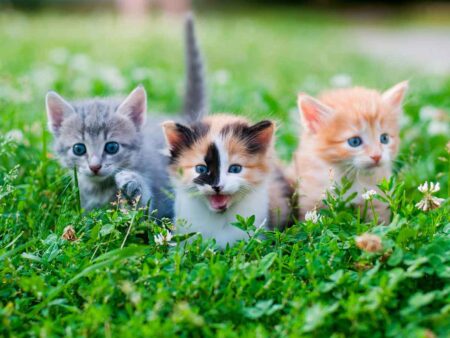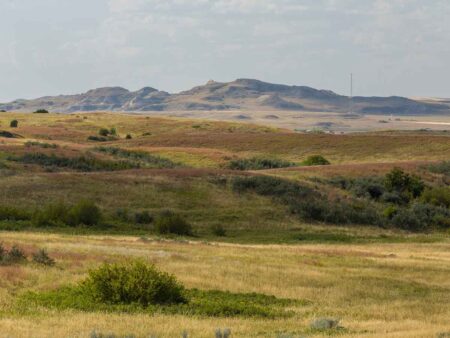The Southern dialects we know today have formed from a mix of many different languages, mainly English, Scottish, Irish, African, and Native American. This mix has created a wide range of unique expressions that define the Southern United States, showcasing its rich cultural background.
Growing up in New Orleans, I was always surrounded by these expressions. They felt so normal to me that I didn’t realize how unique they were until I started moving and living in different places.
Folks moving around (like me) have played a big role in spreading these dialects across the country. As people from the South have relocated to other parts of the United States for various reasons, they’ve taken their unique ways of speaking with them.
This has helped blend Southern speech patterns into other regional dialects, changing the way people talk all over the country in subtle ways.
As a result, Southern expressions have moved around the map and changed how they’re used and what they mean, showing how languages can evolve and adapt over time.
In this article, we’re going to look at 51 Southern expressions.
These expressions are a window into the complex mix of cultural and linguistic influences that have shaped how people talk in the Southern United States. By exploring these expressions, we can appreciate the richness of the Southern dialect and its influence on how American English is spoken today.
51 Southern Expressions

1. Y’all
Origin: A contraction of “you all,” used primarily in the Southern United States.
Examples: “Are y’all coming to the barbecue tonight?” or “Did y’all enjoy the movie?”
2. Fixin’ to
Origin: A Southern way of saying about to do something.
Examples: “I’m fixin’ to start dinner” means getting ready to cook dinner. “He’s fixin’ to leave” means he’s about to leave.
3. How’s your momma and them?
Origin: A Southern expression that shows concern for a person’s family.
Examples: It’s like asking, “How is your family doing?” or “Is everyone in your family okay?”
4. Hot as blue blazes
Origin: Describes something extremely hot, with “blue blazes” referring to the intense part of a flame.
Example: “It’s hot as blue blazes today” means it’s very hot outside.
5. Bless your heart
Origin: This can be a genuine expression of sympathy or a subtle way of calling someone naïve.
Examples: If someone does something foolish, you might say, “Bless your heart.” It can also be used sincerely if someone is in a tough situation.
6. That dog won’t hunt
Origin: This means an idea or plan that isn’t going to work.
Examples: “Trying to fix that old car is like saying that dog won’t hunt” means the car is beyond repair.
7. Don’t let the tail wag the dog
Origin: Used to say that a less important part of something shouldn’t control the whole thing.
Examples: “We can’t let a few people’s opinions change our plans. Don’t let the tail wag the dog.”

8. I reckon
Origin: Another way of saying “I think” or “I believe.”
Examples: “I reckon we’ll get there by 5” means “I think we’ll arrive by 5.”
9. Don’t dilly-dally
Origin: Means don’t waste time.
Examples: “Don’t dilly dally, or we’ll be late for the movie!” It’s a fun way of telling someone to hurry up.
10. Happier than a pig in mud
Origin: Describes someone extremely happy, as pigs love wallowing in mud.
Examples: “He’s happier than a pig in mud with his new toy” means he’s very happy with his new toy.
11: Madder than a wet hen
Origin: Means very angry, as hens don’t like being wet.
Examples: “She was madder than a wet hen when she found out about the prank.”
12: Raining cats and dogs
Origin: An expression used for heavy rain.
Examples: “We can’t go to the park now. It’s raining cats and dogs!”
13: Don’t count your chickens before they hatch
Origin: Advises not to plan on something before it’s certain.
Examples: “He’s already spending the money he thinks he’ll win. He shouldn’t count his chickens before they hatch.”
14: Up the creek without a paddle
Origin: Describes being in a difficult situation without a way out.
Examples: “If we don’t save some money, we’ll be up the creek without a paddle.”
15: This ain’t my first rodeo
Origin: Suggests that someone has experience in what they’re doing.
Examples: “Don’t worry about me, this ain’t my first rodeo,” means “I know what I’m doing.”
16: Busy as a one-armed paperhanger
Origin: Describes someone who’s extremely busy.
Examples: “I can’t come to the phone right now. I’m as busy as a one-armed paperhanger.”
17: A hitch in his get-along
Origin: A humorous way of saying someone has a limp.
Examples: “Ever since his accident, he’s had a hitch in his get-along.”

18: Grinning like a possum eating a sweet tater
Origin: Describes someone who looks very pleased.
Examples: “He was grinning like a possum eating a sweet tater when he saw his birthday cake.”
19: If the Good Lord’s willing and the creek don’t rise
Origin: Means if everything goes as planned.
Examples: “I’ll see you tomorrow if the Good Lord’s willing and the creek don’t rise.”
20: As slow as molasses in January
Origin: Describes something very slow.
Examples: “This internet is as slow as molasses in January.”
21: Don’t let the screen door hit ya where the good Lord split ya
Origin: A playful way of saying goodbye.
Examples: “Alright, I’m off. Don’t let the screen door hit ya where the good Lord split ya!”
22: Full as a tick
Origin: Used to describe being very full, especially after a big meal.
Examples: “I’m full as a tick after that Thanksgiving dinner,” meaning extremely full.
23: Like a cat on a hot tin roof
Origin: Describes someone who is nervous or restless.
Examples: “He was like a cat on a hot tin roof during his first speech,” means he was very nervous.
A Southerner Learns English (Video)
24: Hold your horses
Origin: A way to tell someone to wait or slow down.
Examples: “Hold your horses! We’re not ready to leave yet,” meaning “wait a minute.”
25: Barking up the wrong tree
Origin: This means someone is mistaken or looking in the wrong place.
Examples: “If you think I took your book, you’re barking up the wrong tree,” means “you’re mistaken.”
Origin: Describes something or someone that is very cute or charming.
Examples: “Their new baby is cute as a button,” means the baby is very cute.
27: Fine as frog’s hair
Origin: This means something is very fine or delicate, as frogs don’t have hair.
Examples: “This silk is fine as frog’s hair” describes something very fine.
28: Blessed as the day is long
Origin: Describes feeling very blessed or fortunate.
Examples: “I’m blessed as the day is long to have such great friends” means feeling very fortunate.
29: Slicker than a greased pig
Origin: Describes something very slippery or someone who is clever and can’t be easily caught.
Examples: “Trying to catch that little puppy was like trying to hold onto a greased pig,” means it was very difficult.
30: Over yonder
Origin: Refers to a place that’s a bit far away or not immediately nearby.
Examples: “The store is just over yonder, past the hill,” means the store is in the distance.
31: Knee-high to a grasshopper
Origin: Describes someone who is very young or small.
Examples: “I haven’t seen you since you were knee-high to a grasshopper,” means since you were very young.
32. Colder than a well-digger’s boots
Origin: Used to describe very cold weather.
Examples: “It’s colder than a well digger’s boots out there!” means it’s very cold outside.
33: Faster than a knife fight in a phone booth
Origin: Describes something happening very quickly and chaotically.
Examples: “That game was faster than a knife fight in a phone booth,” means it was very fast-paced.

34: Can’t make a silk purse out of a sow’s ear
Origin: This means you can’t make something fine or excellent out of poor materials.
Examples: “Trying to fix that old car is like trying to make a silk purse out of a sow’s ear,” means it’s hopeless to try.
35: Busier than a moth in a mitten
Want to Connect With a Community of Over 1,078 RV Enthusiasts?
Origin: Describes someone extremely busy or active.
Examples: “Around Christmas time, the mall is busier than a moth in a mitten,” which means it’s very busy.
36: All hat and no cattle
Origin: Describes someone who’s all talk and no substance.
Examples: “He talks big about his plans, but he’s all hat and no cattle,” means he doesn’t back up his words with actions.
37: Like trying to nail Jell-O to a wall
Origin: Describes an impossible or extremely difficult task.
Examples: “Getting him to sit still for a photo is like trying to nail Jell-O to a wall,” means it’s very hard to get him to stay still.
38: Sweating like a sinner in church
Origin: Refers to someone who is very nervous or anxious.
Examples: “He was sweating like a sinner in church during the police questioning,” which means he was very nervous.
39: Too big for his britches
Origin: Describes someone who is acting more important or knowledgeable than they really are.
Examples: “Since he won the contest, he’s gotten too big for his britches,” means he’s become arrogant.
40: The pot calling the kettle black
Origin: When someone criticizes another person for a fault they also have.
Examples: “Her calling me lazy is the pot calling the kettle black!” means she’s also lazy.
41: Like a bull in a china shop
Origin: Describes someone who is very clumsy or careless in a delicate situation.
Examples: “He’s like a bull in a china shop when he tries to help in the kitchen,” means he’s very clumsy.
42: Two peas in a pod
Origin: Describes two people who are very similar or close.
Examples: “Those twins are like two peas in a pod,” means they’re very alike.
43: The early bird gets the worm
Origin: Suggests that success comes to those who prepare well and act quickly.
Examples: “I always get to the sales early. The early bird gets the worm,” which means being early leads to good deals.
44: A few fries short of a Happy Meal
Origin: A humorous way to say someone is not very smart or is missing something obvious.
Examples: “He thought the moon was a planet? He’s a few fries short of a Happy Meal,” which means he’s not very knowledgeable.

45: Like herding cats
Origin: Describes an attempt to control or organize a group that is uncontrollable.
Examples: “Managing that team is like herding cats,” means it’s very difficult to manage them.
46: Can’t swing a dead cat without hitting a…
Origin: This means something is very common or numerous.
Examples: “In this town, you can’t swing a dead cat without hitting a barbecue joint,” which means there are a lot of barbecue places.
47: Till the cows come home
Origin: Refers to a very long time, as cows take their time returning home.
Examples: “You can argue till the cows come home, but you won’t change my mind,” means you can argue for a long time.
48: Like watching paint dry
Origin: Describes something very boring or uninteresting.
Examples: “That lecture was like watching paint dry,” means it was very boring.
49. Chewing the fat
Origin: Means having a long and casual conversation.
Examples: “We were just chewing the fat, talking about old times,” means they were having a leisurely chat.
50. Bought the farm
Origin: A euphemism for dying, originally referring to pilots crashing on rural property.
Examples: “When he crashed his bike, we joked he almost bought the farm,” which means he had a serious crash.
51. Doesn’t know whether to scratch his watch or wind his butt
Origin: Describes someone who is confused or indecisive.
Examples: “He was so confused by the math problem, he didn’t know whether to scratch his watch or wind his butt,” means he was very confused.
Conclusion
These Southern phrases offer more than just a quirky way of speaking; they are a window into the culture and history of the South. Each one, with its vivid imagery and down-to-earth wisdom, paints a picture of a region where language is as rich and colorful as the landscape.
Whether it’s humorously describing a difficult task or offering a unique take on everyday life, these expressions are an integral part of the Southern charm.
How to Tell If a Southern Woman Is Mad at You (Video)
"Man cannot discover new oceans unless he has the courage to lose sight of the shore."
-- Andre Gide








